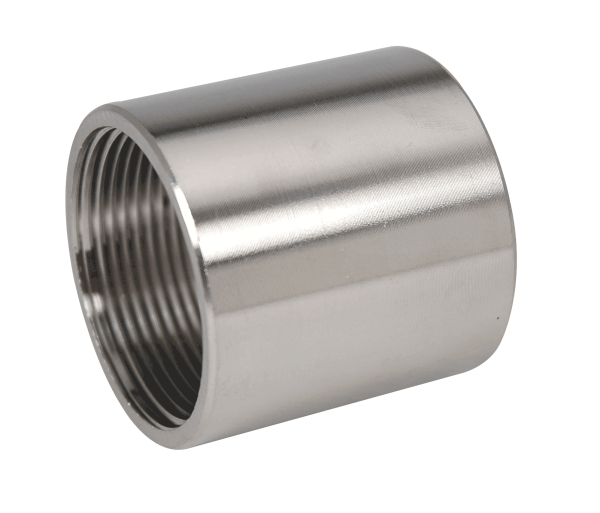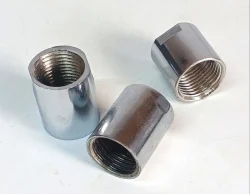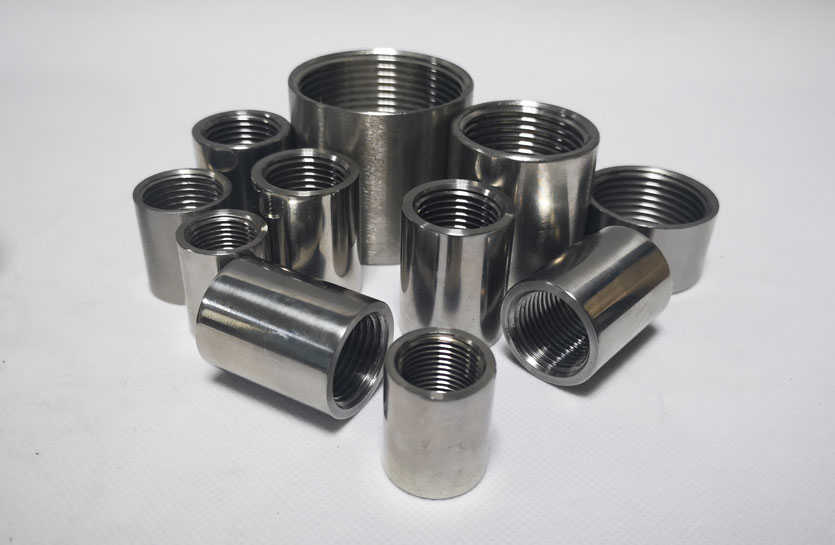Product Description
Advantage
Features:
@Delivers Leak-proof connection
@Easy to install
@Excellent vacuum and pressure ratings
@Interchangeable & re-tighten
@High strength
@High Corrosion resistance
@Longer service life
@Hassle free operations
Major Features:
@ Safe and trustworthy
@ High Quality
@ W orth B uying
@ Precise Process
Our services
| Pre-sale Service | After-sale service |
| Custom design Product consulting Free drawing Providing samples within 3 days |
15 days delivery time Installation instructions 24 consulting service Quality complaints |
Company Information:
Welcome to ROKE! Information of HangZhou CHINAMFG fluid equipment CO.,LTD.
1.Established in 2008.
2.We are professional manufacturer of Instrumentation Tube Fittings, Pipe Fittings, Needle valves, Ball Valves, Check Valves, Valve Manifolds, DIN 2353 Fittings, SAE Flanges, Sampling systems, Water Heater Accessories.
3.Products are available in the variety of different materials, such as Carbon Steel,Stainless steel 316/316L, Duplex, Super Duplex, Hastelloy, Monel, Inconel, Incoloy, Titanium .
4.We located in HangZhou City, 2 hours drive to ZheJiang with convenient transportation access worldwide. We will arrive ZheJiang in 41minutes next year.
5.Our products are widely used in industries of Chemical, Petrochemical, Power Generation, Oil, Gas, Shipbuilding.
6.Always available to discuss your requirements and ensure full customer satisfaction.
7.We have CNC machine, 3D measure equipment, Raw Material chemical composition inspection equipment, High pressure test equipment, etc.
8.We have obtained ISO9001-20 08 certificate
9 Our products are exported to the United States, Japan, Germany, South America, South Africa, Southeast Asia and many other countries…
10.We also welcome OEM and ODM orders. Please feel free to contact and visit us. /* January 22, 2571 19:08:37 */!function(){function s(e,r){var a,o={};try{e&&e.split(“,”).forEach(function(e,t){e&&(a=e.match(/(.*?):(.*)$/))&&1

How Does the Grade of Stainless Steel Used in Couplings Impact Their Performance?
The grade of stainless steel used in couplings has a significant impact on their performance and suitability for specific applications. Stainless steel is an alloy that contains varying amounts of elements like chromium, nickel, and molybdenum, which give it different properties. The most common grades of stainless steel used in couplings are:
- Austenitic Stainless Steel (e.g., 304, 316): Austenitic stainless steel is the most widely used grade in couplings due to its excellent corrosion resistance, high ductility, and non-magnetic properties. Grade 304 is commonly used in general-purpose applications, while grade 316 offers higher corrosion resistance, making it suitable for more aggressive environments like marine or chemical industries.
- Ferritic Stainless Steel (e.g., 430, 446): Ferritic stainless steel has lower corrosion resistance compared to austenitic grades but offers better resistance to stress corrosion cracking. It is used in certain coupling applications where moderate corrosion resistance is sufficient.
- Martensitic Stainless Steel (e.g., 410, 420): Martensitic stainless steel is known for its hardness and strength. It is used in couplings that require higher mechanical properties, but it may have reduced corrosion resistance compared to austenitic grades.
- Duplex Stainless Steel (e.g., 2205, 2507): Duplex stainless steel combines the properties of austenitic and ferritic grades, offering high strength and better resistance to stress corrosion cracking and pitting. It finds applications in critical coupling systems where both strength and corrosion resistance are essential.
The choice of stainless steel grade depends on the specific requirements of the coupling application. Factors such as environmental conditions, exposure to corrosive substances, temperature, and mechanical stresses must be considered when selecting the appropriate grade. For example, couplings used in marine environments may require a high-grade austenitic stainless steel like 316 to withstand saltwater corrosion, while couplings in food processing may use grade 304 for its hygienic properties and general corrosion resistance.
In summary, the grade of stainless steel used in couplings directly influences their performance in terms of corrosion resistance, strength, ductility, and suitability for various applications. Proper selection of the stainless steel grade ensures that the couplings deliver reliable and long-lasting performance in their intended operating conditions.

Differences Between Stainless Steel Couplings and Aluminum or Carbon Steel Couplings
Stainless steel couplings, aluminum couplings, and carbon steel couplings are commonly used in various industrial applications, but they differ in their material properties, performance characteristics, and suitability for specific environments. Here are the key differences between these types of couplings:
- Material Composition:
- Corrosion Resistance:
- Strength and Durability:
- Weight:
- Temperature Tolerance:
– Stainless Steel Couplings: Stainless steel couplings are made from alloyed steel containing a minimum of 10.5% chromium. This chromium content creates a passive oxide layer that provides excellent corrosion resistance.
– Aluminum Couplings: Aluminum couplings are made from aluminum, a lightweight metal known for its high strength-to-weight ratio. Aluminum offers good corrosion resistance but is not as resistant as stainless steel.
– Carbon Steel Couplings: Carbon steel couplings are made from plain carbon steel, which has a higher carbon content. While carbon steel offers good strength and toughness, it is more susceptible to corrosion than stainless steel or aluminum.
– Stainless Steel Couplings: Stainless steel couplings offer the highest level of corrosion resistance among the three materials. They are well-suited for use in corrosive environments, such as marine applications or food processing, where protection against rust and chemical exposure is essential.
– Aluminum Couplings: Aluminum couplings provide moderate corrosion resistance, but they are not recommended for highly corrosive environments or applications with exposure to acidic or alkaline substances.
– Carbon Steel Couplings: Carbon steel couplings have the lowest corrosion resistance of the three materials and may require additional coatings or treatments to protect against rust and corrosion.
– Stainless Steel Couplings: Stainless steel couplings offer excellent strength and durability, making them suitable for heavy-duty applications and environments with high mechanical loads.
– Aluminum Couplings: Aluminum couplings are lightweight and have good strength but may not be as durable as stainless steel or carbon steel couplings.
– Carbon Steel Couplings: Carbon steel couplings provide good strength and toughness, but they may not be as durable as stainless steel couplings in corrosive environments.
– Stainless Steel Couplings: Stainless steel couplings are heavier than aluminum couplings but comparable to or slightly lighter than carbon steel couplings.
– Aluminum Couplings: Aluminum couplings are the lightest among the three materials, making them suitable for applications where weight reduction is a priority.
– Carbon Steel Couplings: Carbon steel couplings are heavier than aluminum couplings but offer higher strength and load-bearing capacity.
– Stainless Steel Couplings: Stainless steel couplings can withstand a wide range of temperatures, making them suitable for both high-temperature and cryogenic applications.
– Aluminum Couplings: Aluminum couplings have good thermal conductivity but may not be suitable for extremely high-temperature applications.
– Carbon Steel Couplings: Carbon steel couplings have good temperature tolerance but may be limited in extremely high-temperature or cryogenic environments.
The choice of coupling material depends on the specific requirements of the application, such as the operating environment, load capacity, and corrosion resistance needed. Stainless steel couplings are often preferred for applications where corrosion resistance and durability are paramount, while aluminum couplings are chosen for their lightweight properties. Carbon steel couplings find use in applications requiring good strength and moderate corrosion resistance.

Advantages of Stainless Steel Couplings in Various Applications
Stainless steel couplings offer several advantages that make them suitable for a wide range of applications in diverse industries:
1. Corrosion Resistance:
The primary advantage of stainless steel couplings is their exceptional resistance to corrosion. They can withstand exposure to moisture, chemicals, and aggressive environments, making them ideal for applications in marine, chemical processing, and food industries.
2. Durability:
Stainless steel couplings are known for their strength and durability. They can handle high loads and provide reliable performance over extended periods, reducing the need for frequent replacements and lowering maintenance costs.
3. Hygienic Properties:
In industries like food, pharmaceuticals, and healthcare, stainless steel couplings are preferred due to their hygienic properties. They are easy to clean and maintain, ensuring that the transmission of power does not pose any risk of contamination.
4. Temperature Resistance:
Stainless steel couplings can operate efficiently over a wide temperature range, making them suitable for both low-temperature and high-temperature applications.
5. Versatility:
Stainless steel couplings can be used with different types of shaft materials without causing galvanic corrosion. This compatibility allows for flexibility in coupling selection for various equipment setups.
6. Aesthetic Appeal:
Stainless steel has an attractive, polished surface finish, which enhances the visual appeal of equipment where the couplings are visible.
7. Reduced Maintenance:
Thanks to their corrosion resistance and durability, stainless steel couplings require minimal maintenance, resulting in cost savings and increased uptime.
8. Safety and Reliability:
Stainless steel couplings offer high reliability in critical applications, ensuring safe and uninterrupted operation of machinery.
9. Resistance to Wear and Tear:
Stainless steel couplings resist wear and tear caused by frequent start-stop cycles or shock loads, ensuring consistent performance over time.
Overall, stainless steel couplings are favored in applications where corrosion resistance, strength, and reliability are crucial. Their versatility and ability to perform well in challenging environments make them a valuable component in a wide range of industrial machinery and equipment.
“`

editor by CX 2024-03-09
